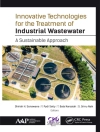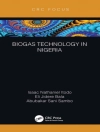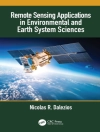This book presents a comprehensive examination of the pivotal challenges and viewpoints about energy poverty, energy justice, and gender diversity challenges within the Latin American energy transition context. Notwithstanding the discourse of progress on energy access espoused by some governments, a considerable number of communities in the region continue to lack reliable electricity, thereby emphasizing a glaring disparity in the distribution of benefits and burdens. Through a nuanced and incisive lens, this book explores the complex landscape of inequality and opportunity, emphasizing the urgent need for inclusive action and systemic transformation.
The book employs an interdisciplinary methodology, integrating insights from energy policy, social justice, and gender studies to provide a comprehensive analysis of the complex interrelationship between these domains. It examines the intersection between energy poverty and broader social inequalities, particularly gender disparities, and highlights the necessity for solutions that prioritize the most vulnerable communities. By integrating case studies, real-world examples, and expert analysis, the book offers a more nuanced understanding of the barriers and opportunities for progress.
The book offers practical policy recommendations and actionable strategies, making it an invaluable resource for policymakers, NGOs, academics, and stakeholders dedicated to fostering an inclusive, sustainable, and just energy transition in Latin America. It encourages readers to reconsider traditional approaches and to advocate for a new vision where energy justice and gender equality are paramount in the region’s development.
Cuprins
Chapter 1: Energy Poverty, Justice, and Gender in Latin America – Understanding the Intersection.- Section I: Energy Poverty: Frameworks and evidence discussion of a multidimensional problem.- Chapter 2: Energy poverty in Ecuador from a multidimensional perspective.- Chapter 3: Energy inequality in Central America: Challenges and policy responses.- Chapter 4: When energy transition does not meet energy poverty mitigation: The case of Ceará state in Brazil.- Chapter 5: Energy transition in the Brazilian Amazon: Empowering communities through clean and equitable energy access.- Section II: Energy Justice: Contradictions in burden and benefit.- Chapter 6: Who has the right to energy? Insights from the constitutional discussion in Chile.- Chapter 7: The paradigm of energy transition in Brazil: Scarcity and abundance of Brazilian semiarid region.- Chapter 8: Winds of Justice? Challenging and Promoting Women’s Social Inclusion in Northern Brazil through Wind Energy Projects.- Chapter 9: Energy poverty and food poverty in Latin America, towards a rights perspective.- Section III: The gendered landscape: Connections of an obvious but unacknowledged relationship with energy poverty and justice.- Chapter 10: Entanglements of energy justice and dignity in Latin America. Weaving a Gender Perspective into the right to energy.- Chapter 11: Beyond gender: the intersectional look at energy poverty through the experiences of Argentina and Mexico.- Chapter 12: The transformative role of women towards social justice in Brazil.- Chapter 13: Energy poverty and tariff segmentation in Argentina: distributive incidence and the gender effect.- Chapter 14: Burning as a reflection of energy poverty? An Intersectional Gender Analysis in Brazil.
Despre autor
Lira Luz Benites Lazaro holds a Ph.D. from the Center for Earth System Science at the National Institute for Space Research (CST-INPE) and a Master’s and Ph.D. from the Graduate Program on Latin American Integration Studies at the University of São Paulo (USP-PROLAM). She is a researcher at the São Paulo Center for Energy Transition Studies (CPTEn) – UNICAMP. She is a visiting researcher at the University of Birmingham and has also been a visiting researcher at the Durham Energy Institute at Durham University, UK. She is a member of the Working Group on Energy and Sustainable Development at the Latin American Council of Social Sciences (CLACSO), where she coordinates two main lines of research: Energy Poverty, Justice and Gender in Latin America and Geopolitics of Energy Transition and Regional Integration. Lira is also a member of the Environment and Society Research Group at IEA-USP and participates in the Pro ETUSP Thematic Axes Program, which promotes research related to the implementation of the Sustainable Development Goals (SDGs) in Brazil, with a focus on developing public policy agendas. She is a researcher at the Graduate Program in Public Administration (NPGA) at the School of Administration, UFBA, within the Research Group on Global Environmental Governance and the Carbon Market. Recent projects she is involved in include Grant 2024/01486-9: “Green Hydrogen and Energy Transition: Regulatory, Technological, Productive and Decarbonization Challenges in Mercosur” and Grant 2022/10458-3: “Clean Energy, Sustainable Life: Promoting Education, Transmission of Traditional Practices, and Income Generation among Amazonian Indigenous Peoples.”
Sigrid de Aquino Neiva Sigrid de Aquino Neiva: Ph D candidate at the Institute of Energy and Environment, University of São Paulo (IEE/USP), focusing on energy poverty and social inequalities in urban areas. Holds a BSc in Forest Engineering and an MSc in Forest Management from the Federal University of Viçosa (UFV), and a specialization in Occupational Safety Engineering. She has over 20 years of experience in environmental studies of vegetation in both public and private sectors. Currently, she is a member of the Energy Governance Research Group (GPGE) at IEE/USP and the Poverty, Justice, and Gender Working Group of the Latin American Council of Social Sciences (CLACSO).
Esteban Serrani is a Sociologist, he has a Master’s Degree in Social Research and a Ph D in Social Sciences, University of Buenos Aires. He is a Researcher of the National Council for Scientific and Technical Research (CONICET) and a Professor at the National University of San Martin, Argentina. He is a Co-Director of the Centre for Social Studies of the Economy, at the Interdisciplinary School of High Social Studies, National University of San Martin. He is a Fellow Fulbright Argentina, and he was Scholar Visiting in Columbia University. He is Director of the Project ‘Approaches to the relationship between energy models and industrial policy in Argentina, 2002-2019’ and “Analysis of the performance of large industrial companies in the energy transition in Argentina”, supported by the National Agency for the Promotion of Research, Technological Development and Innovation. He is currently coordinating the UNSAM research group from Argentina in the project ‘Green Hydrogen and Energy Transition: Regulatory, Technological, Productive, and Decarbonization Challenges for Mercosur’, which also involves UDELAR from Uruguay, UNICAMP and the UFC from Brazil, and UNE from Paraguay, and receives funding from four national R&D agencies. In Latin America, he is the coordinator of the CLACSO Working Group on ‘Energy and Sustainable Development’, and he is member of the Academic Committee, Southern Cone Regional Centre at Maria Sibylla Merian Centre for Advanced Latin American Studies (CALAS).












